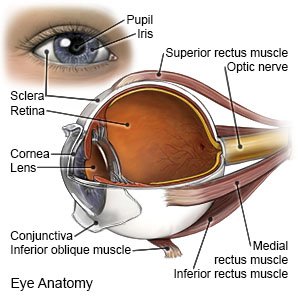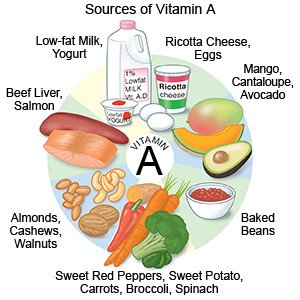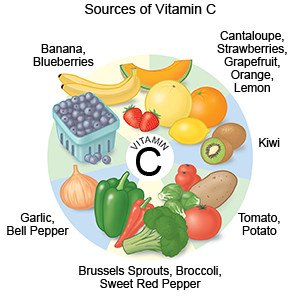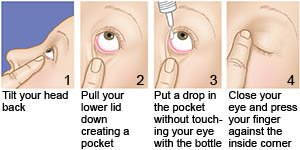Corneal Abrasion
Medically reviewed by Drugs.com. Last updated on Apr 6, 2025.
AMBULATORY CARE:
A corneal abrasion
is a scratch on the cornea of your eye. The cornea is the clear layer that covers the front of your eye. A small scratch may heal in 1 to 2 days. Deeper or larger scratches may take longer to heal. Do not touch or rub your eye while it is healing.
 |
Common signs and symptoms:
- Pain, redness, or swelling of the eye
- Difficulty opening the eye
- More tears than usual
- A feeling that you have something in your eye
- Blurred vision
- Sensitivity to bright light
- Headache
Call your doctor or ophthalmologist if:
- Your eye pain or vision gets worse.
- You have yellow or green drainage from your eye.
- You have questions or concerns about your condition or care.
Treatment for a corneal abrasion
may include antibiotic eyedrops or ointment to help prevent an eye infection. You may also be given eyedrops to decrease pain.
Care for your eyes:
- Get regular eye exams. Get your eyes checked at least every year.
- Eat healthy foods. Fresh fruits and vegetables that are rich in vitamins A and C may help with your vision. Foods such as sweet potatoes, apricots, and carrots are rich in nutrients for the eyes.


- Take care of your contacts or glasses. Store, clean, and use your contacts or glasses as directed. Replace your glasses or contact lenses as often as your healthcare provider suggests.
- Decrease eye strain. Rest your eyes, especially after you read or use a computer for long periods of time. Get plenty of sleep at night. Use lights that reduce glare in your home, school, or workplace.
- Wear dark sunglasses. This will help prevent pain and light sensitivity. Make sure the sunglasses have UVA and UVB protection. This will protect your eyes when you go outside.
- Use eyedrops safely. If your treatment plan includes eyedrops, it is important to use them as directed. Your provider may give you detailed instructions to follow. The eyedrops may also come with safety instructions. Follow all instructions to help prevent an infection. Do not touch the tip of the bottle to your eye. Germs from your eye can spread to the medicine bottle.

Prevent corneal abrasions:
- Remove your contact lenses if your eyes feel dry or irritated.
- Wash your hands if you need to touch your eyes or your face.

- Trim your fingernails so you cannot scratch your eye.
- Wear protective eyewear when you work with chemicals, wood, dust, or metal.
- Wear protective eyewear when you play sports.
- Do not wear your contacts for longer than you should.
- Do not sleep with your contacts in.
- Do not wear glitter makeup. Glitter can easily get into your eyes and under contact lenses.
Follow up with your doctor or ophthalmologist as directed:
Write down your questions so you remember to ask them during your visits.
© Copyright Merative 2025 Information is for End User's use only and may not be sold, redistributed or otherwise used for commercial purposes.
The above information is an educational aid only. It is not intended as medical advice for individual conditions or treatments. Talk to your doctor, nurse or pharmacist before following any medical regimen to see if it is safe and effective for you.
Learn more about Corneal Abrasion
Treatment options
Care guides
Symptoms and treatments
Further information
Always consult your healthcare provider to ensure the information displayed on this page applies to your personal circumstances.
